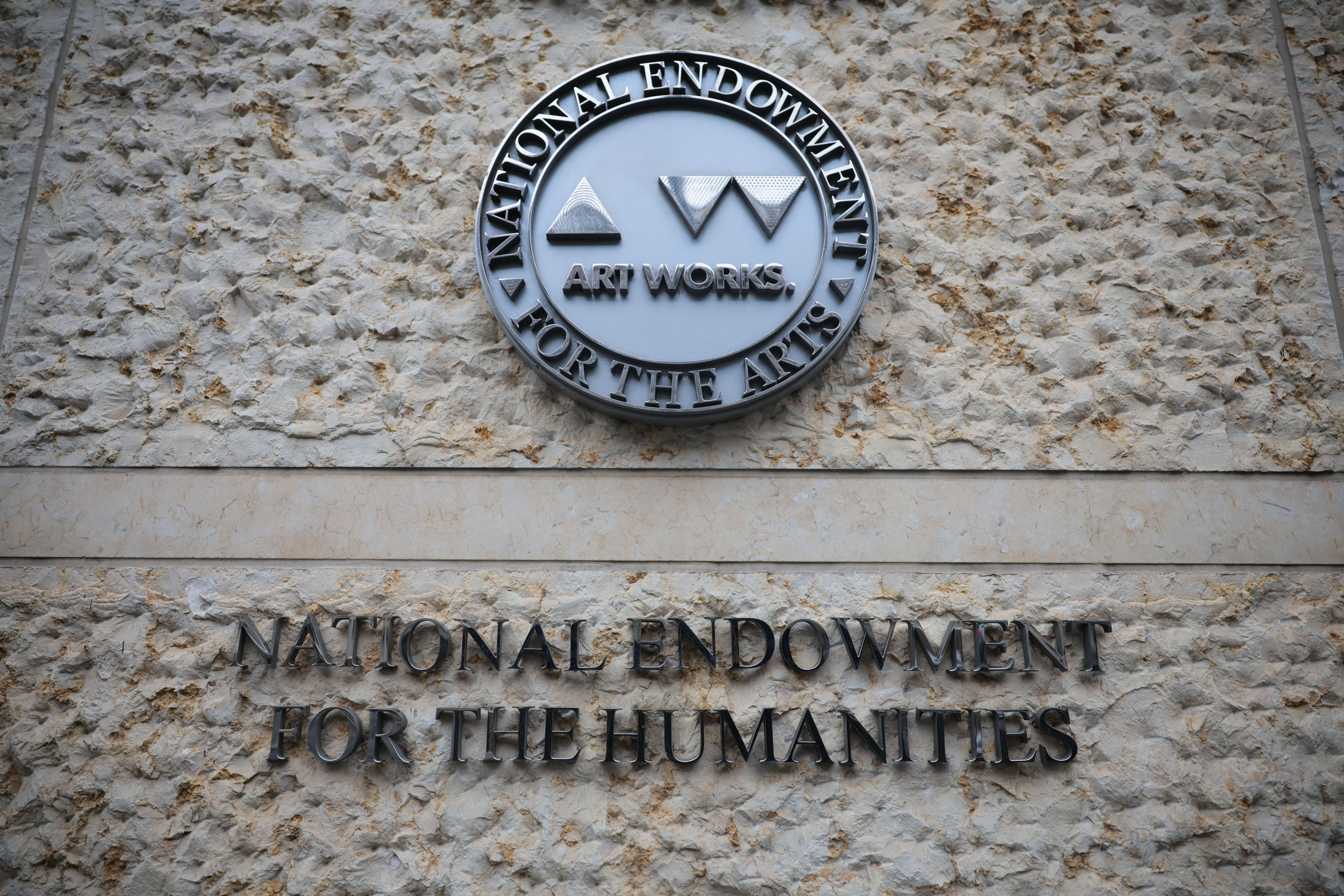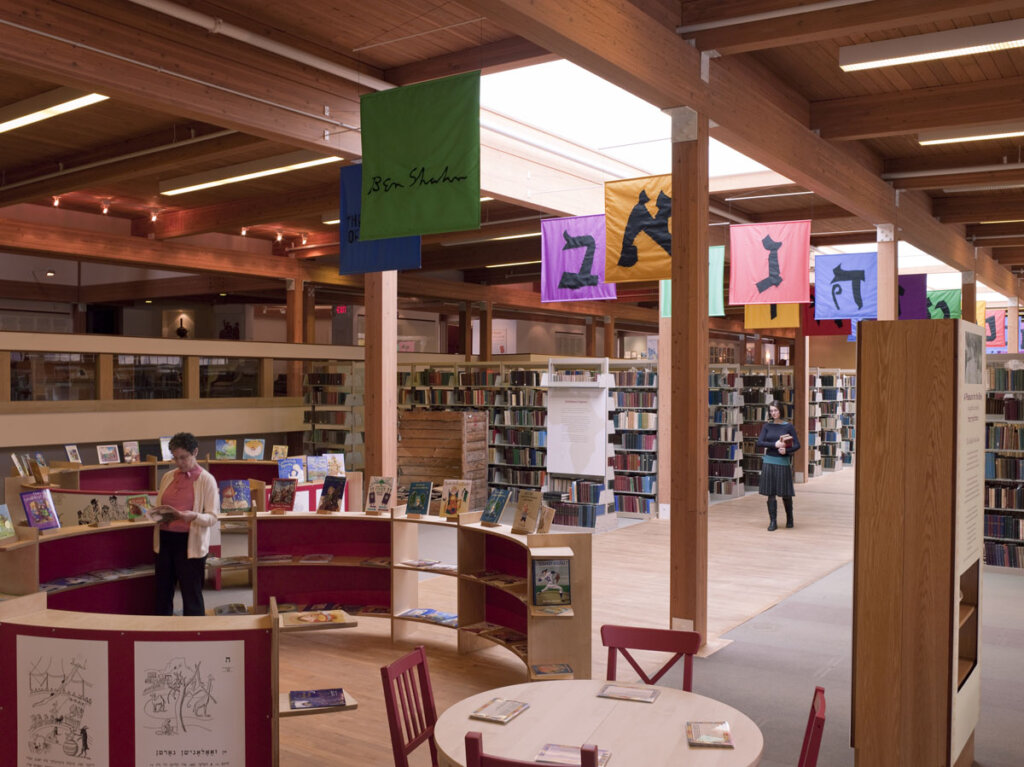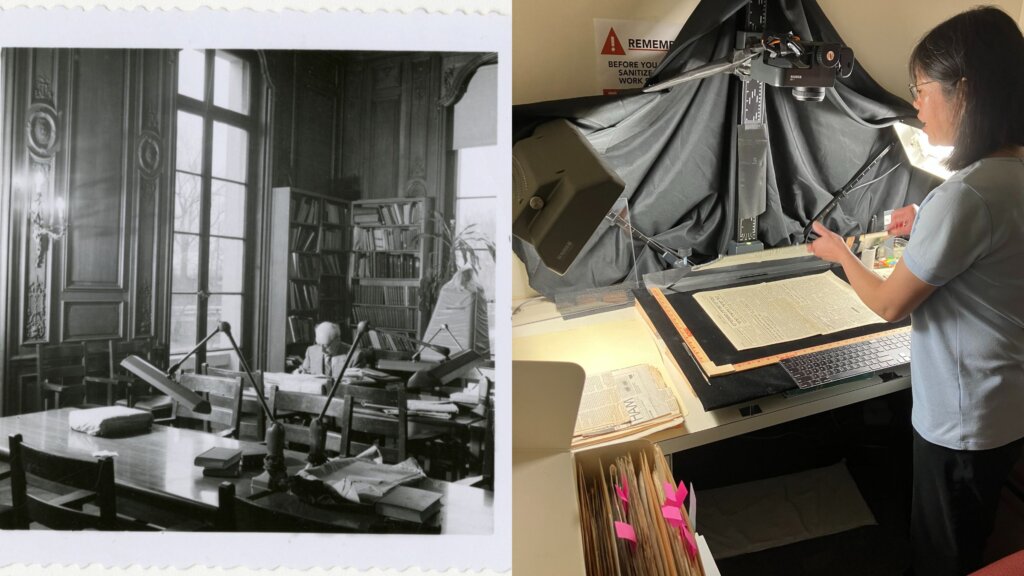Jews thought Trump wanted to fight antisemitism. Why did he cut all of their grants?
When DOGE routed the National Endowment for the Humanities, hundreds of grants for Holocaust history and Yiddish culture were terminated

Layoffs and grant terminations have routed the past few weeks at the National Endowment for the Humanities. Courtesy of Getty Images
Christina Crowder was in London, presenting on her work with the Klezmer Institute at a conference, when she got the news that the federal grant funding the trip had been terminated by the Trump administration. That meant that the cost of the flight she’d already taken and the hotel where she was staying would not be reimbursed.
Crowder and her colleague Clara Byom had been thrilled to receive a $150,000 grant from the National Endowment for the Humanities in 2020 to fund the creation of an archive of technologically innovative Klezmer music. They were more than two-thirds of the way through the grant’s period, and only $57,000 remained — hardly enough to fix the national debt, but an important amount to the tiny organization, where Byom and Crowder are the only two full-time employees.
Most of their other funding comes from small individual donations — often checks for $18 or $36 — from musicians who care about klezmer. So the money, and the prestige, that came with the NEH grant was life-changing.
“A lot of these NEH grants go to — incredible! — projects that are often adjacent to academia,” Byom said when we spoke via video chat. “So the fact that we received an NEH grant as a tiny organization doing rather innovative work is a big freaking deal.”
But then the Klezmer Institute — along with hundreds of other NEH projects — all received the same form letter terminating their grants, saying that their projects did not assist in “the furtherance of the President’s agenda” and that the funds would be redistributed to work that was more aligned with Trump’s goals.
Byom and Crowder were aware that the Trump administration was making cuts to government funding across the board, particularly targeting trans people and DEI initiatives; they knew that the Department of Government Efficiency — better known as DOGE, the agency spearheaded by Elon Musk — was eviscerating the NEH. But they didn’t know what might have flagged their project for termination.
“We don’t have any of the ‘target words,’” Crowder said. “We don’t talk about equity, we don’t talk about inclusion, there is nothing in there at all that has to do anything with the stated priorities of the administration with regard to DEI.”
And, of course, given the Trump administration’s stated goal of fighting antisemitism, the idea that a project gathering Jewish history would be cut for not furthering the Trump administration’s agenda seemed absurd.
The importance of studying Yiddish
The Klezmer Institute was far from the only Jewish project to lose its funding. Translations of Ukrainian-Jewish poetry, Yiddish women writers and Soviet Holocaust literature were cut; libraries and museums such as YIVO lost the funding for digitization projects and new exhibitions; a Jewish playwriting contest lost its $20,000 grant. They join the ranks of hundreds of other canceled NEH grants, including the funding for the humanities councils of every U.S. state.
Many of the Jewish cultural projects that lost NEH funding were focused on Yiddish. Yiddish, and Jewish culture more generally, has historically been underfunded by Jewish institutions. So Yiddish projects turned to the federal government for support — and were just beginning to find purchase at the NEH, before the grants were terminated across the board.
“The bigger funders in the Jewish world were looking toward Jewish summer camps and Holocaust education and, of course, Israel,” said Susan Bronson, the executive director of the center. “It’s not that they’re funding the wrong things; it’s that they’re failing to see the potential in the cultural sphere.”

So when the center received its first NEH grant — it has now received around $1 million in NEH grants over the past five years — it was a huge boost, not only to the Yiddish Book Center but to the field of Yiddish at large.
“As important as those actual dollars have been, I think symbolically, it’s been even more important because it’s such a wonderful imprimatur to have the NEH supporting your work,” Bronson said. “It put us in a bigger pond.”
Jonathan Brent, the executive director of the YIVO Institute for Jewish Research, told a similar story of an NEH grant for $250,000 they received in 2015 to put its Vilna collection of library materials and texts online.
“It got it started not only for us financially — because we could have found that $250,000 somewhere else perhaps — but it elevated the significance of the project for the public and made it possible for the public to say this is being supported by the NEH and it’s probably worth supporting,” Brent said. “That’s a role the NEH has played for many other organizations, particularly smaller ones. It means that the grant has gone through a significant vetting process, that scholars have looked at it, and that’s significant.”
YIVO has since received many NEH grants, including one for $349,524 that was devoted to digitizing four archives connected to the Bund; that grant just terminated with nearly $200,000 left to be disbursed. Two other federal grants through other agencies are now on pause, and they suspect they won’t see any of that remaining money either.
Trump’s commitment to fighting antisemitism
An essential part of applying for an NEH grant is proving the project’s importance to the greater American public. Everyone I spoke to said that going through the cumbersome application process has helped to shape their projects into something far more impactful than their initial ideas. And much of that impact could easily be seen as furthering the Trump administration’s stated goal of fighting antisemitism.
“There are many many many hundreds and thousands of materials in that Bund archive that are about fighting antisemitism and about Nazism and the growth of fascism in Europe,” Brent said of YIVO’s archival projects.

And, importantly, people are using those resources. Before receiving the NEH grant, a few thousand people each year had been visiting YIVO’s reading room to access the Vilna collection for their research. Today, with the materials online, Brent said, the collection has received over a million individual hits.
This type of scholarly and cultural work in fighting antisemitism often gets less attention from funders. But Bronson, of the Yiddish Book Center, said she believes it’s just as important — and just as impactful, even if it’s harder to measure.
“In terms of fighting antisemitism, there tends to be this very blunt approach — we’re going to support Holocaust museums and say ‘never again’ and run a Super Bowl ad,” Bronson said. “They tend not to think about the ways that the Yiddish Book Center and YIVO are fighting antisemitism by creating a deep connection to Jewish history and culture and educating Jews and non-Jews about Jewish culture in ways that are more than just a slogan.”
Sasha Senderovich, a professor of Slavic languages at the University of Washington, was awarded a two-year NEH grant for a translation project with co-translator Harriet Murav from the University of Illinois: In the Shadow of the Holocaust: Short Fiction by Jewish Writers from the Soviet Union. (The pair had already sent their manuscript to press when their grant was terminated, so the project will be completed regardless — though some of Senderovich’s work will go uncompensated.)
“We’re expanding the knowledge of the Holocaust,” Senderovich said. “When you pitch a project like this, you have to think about it in a way that’s broader than benefiting Jewish culture and Jewish culture. The whole point is that it shouldn’t be of interest only to Jews or Jewish institutions. This is our global, national education.”
Previously, Yiddish had seemed like a burgeoning priority for the NEH. The grant Senderovich received — one given for work on scholarly books — has historically been given to English-language projects. But in the past few years, several Yiddish translation projects won the grants, seemingly pointing to a growing recognition of the importance of the Jewish experience to understanding history in America.
Allison Schachter, who received a grant in the same category as Senderovich, didn’t even receive the form letter terminating her grant for a project translating the work of Yiddish writer Rokhl Brokhes. After getting a heads-up from a friend, she logged into her grant management system to find a brusque cancellation notice reading: “Warning: Overdue forms full, administrative termination.” She did not have any outstanding forms to complete.
“I don’t actually think that they looked,” Schachter said. “What’s really sad is that someone has spent the time and effort to write one of these grants and envision its intersection with the public and to gain the support of the NEH — to have it tossed off with so little thought is hard.”
The future of funding
I asked everyone I spoke to whether they thought they might be able to regain their funding by emphasizing the importance of studying Jewish history and culture in fighting antisemitism.
But no one thought their project had specifically gone against Trump’s priorities. It was hard to imagine that the cuts were really about the individual projects, which cost very little in the grand scheme of the government’s funding — the total NEH budget was $207 million in 2024, compared to, say, the Secret Service, which has a budget of $3.2 billion for 2025.
Instead, the researchers and writers all thought that cutting funding for scholarly and cultural projects was done for symbolic reasons. “I think that they’re hostile to the idea of the NEH and to scholarly research and expertise,” Schachter said.
Senderovich scoffed at my question, saying there’s no point in imagining rewriting a grant application to conform with the Trump administration’s priorities.
“We will start to speculate and try to reverse engineer authoritarian thinking. But you can’t. It defies logic,” he said. “It’s a hallmark of authoritarian government to destroy the humanities because you don’t need the thinking public to engage critically with past, present and future.”
And Brent worried that, even if YIVO could reapply for their grants — a doubtful proposition, given the fact that 80% of the staff at the NEH has been fired, leaving the endowment’s future existence in question — receiving one might harm the cause of antisemitism much more than it would help it.
“I feel that if grants to Jewish organizations are reinstated and not others, that it will only inflame antisemitic attitudes in the United States about Jewish influence,” he said. “My own view of the matter is that we will not not accept a reinstatement of our grant unless all grants are reinstated.”
“Maybe there needs to be a recalculation,” he added of the grant applications guidelines, “but those need to be done in a manner that is in accord with a liberal process and liberal understanding, not a process that is essentially authoritarian and in fact totalitarian.”
In any case, no one thought that whoever terminated their grant had actually read about their work — so rewriting the grant was a doomed project.
Brent pointed out that YIVO ran a controversial series of talks on Hamas last year, in the wake of Oct. 7. That program was not a scholarly examination of something as esoteric as Yiddish; though it occurred before Trump’s reelection, it aligned with the Trump administration’s apparent focus on Israel and Hamas in its antisemitism initiative.
“You might think that the place that put on those programs might be insulated from that agenda,” Brent said. “But we weren’t, which tells me that what’s happening is happening without thinking.”
“This is worthy of the fools of Chelm,” he said.
















